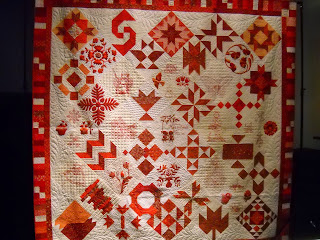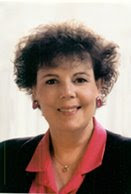 Comforters is a community group that gets together to support each other and the
community. They help each other with hand and machine quilting
or other hand work.It was great visiting with so many friends!
Comforters is a community group that gets together to support each other and the
community. They help each other with hand and machine quilting
or other hand work.It was great visiting with so many friends!I shared some thoughts about borders!
My quilts are colorful, graphic, vibrant, and joyful!
 Comforters is a community group that gets together to support each other and the
community. They help each other with hand and machine quilting
or other hand work.It was great visiting with so many friends!
Comforters is a community group that gets together to support each other and the
community. They help each other with hand and machine quilting
or other hand work.It was great visiting with so many friends! I'm home from Tulsa just in time to catch the last day of the Northwest Folklife Festival. It is an independent year-round nonprofit organization dedicated to creating opportunities for all people to appreciate, share, and participate in the evolving folk and ethnic traditions of the Pacific Northwest. Every year since 1972 they have presented the Northwest Folklife Festival in Seattle Center on Memorial Day Weekend.
I'm home from Tulsa just in time to catch the last day of the Northwest Folklife Festival. It is an independent year-round nonprofit organization dedicated to creating opportunities for all people to appreciate, share, and participate in the evolving folk and ethnic traditions of the Pacific Northwest. Every year since 1972 they have presented the Northwest Folklife Festival in Seattle Center on Memorial Day Weekend. |
| of course I'm attracted to the fiber. |
 |
| Loved the quilted guitar! |
 |
| Wow oh wow I found a new use for doilies!!! |
 |
| Their beautiful 2015 raffle quilt |
 |
| community service quilt for Habitat for Humanity |
 |
| Show and tell |
 |
| Show and tell |
 |
| Show and tell |
 |
| Tulsa Fire Alarm Building, built in 1934 |
 |
| William D. Whenthoff Residence, built in 1933 |
 Utah’s desert areas generally occur in valleys and plateaus
at elevations between 2500 and 5000 feet. This relatively high elevation, in combination
with a continental climate and a northern latitude, make for temperatures are hot, but less extreme than adjacent deserts
to the south. They produce 92 types of flowers. We enjoyed just a few.
Utah’s desert areas generally occur in valleys and plateaus
at elevations between 2500 and 5000 feet. This relatively high elevation, in combination
with a continental climate and a northern latitude, make for temperatures are hot, but less extreme than adjacent deserts
to the south. They produce 92 types of flowers. We enjoyed just a few. |
| I happen to know this1888, 8065 square foot home, has 8 bedroom, 5 baths is for sale for $319,775. |
 |
| The Whitmore Mansion, established in 1898, is now a Band B. |
 At Page, AZ is the Glen Canyon Dam which is a concrete arch dam on the Colorado River The dam was built to provide hydroelectricity and flow regulation from the upper Colorado River Basin to the lower. Its reservoir is called Lake Powell, and is the second largest artificial lake in the country, extending upriver well into Utah. The dam is named for Glen Canyon, a colorful series of gorges, most of which now lies under the reservoir.
At Page, AZ is the Glen Canyon Dam which is a concrete arch dam on the Colorado River The dam was built to provide hydroelectricity and flow regulation from the upper Colorado River Basin to the lower. Its reservoir is called Lake Powell, and is the second largest artificial lake in the country, extending upriver well into Utah. The dam is named for Glen Canyon, a colorful series of gorges, most of which now lies under the reservoir.
 We hired a guide, Robbie, to take us to ruins. River House is a stabilized ruin along the San Juan River. It was occupied by Ancestral Puebloans between AD900 and the late 1200s. At the ruin you can walk among stabilized ruin walls, admire rock art, painted and etched on the overhang walls and ceiling, and examine fragments of pottery and stone tools.
We hired a guide, Robbie, to take us to ruins. River House is a stabilized ruin along the San Juan River. It was occupied by Ancestral Puebloans between AD900 and the late 1200s. At the ruin you can walk among stabilized ruin walls, admire rock art, painted and etched on the overhang walls and ceiling, and examine fragments of pottery and stone tools. |
| Charles at work! |



